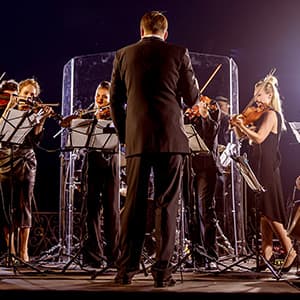

Bach Tickets
Up to 30% Off Compared to Competitors.
Location: Select Location (e.g, New York)
Events Nearby
We're Sorry. There are currently no events near you.
About Bach
Currently, Johann Sebastian Bach's music is celebrated through countless live performances and concerts around the globe. Various orchestras, chamber ensembles, and choirs regularly include Bach's masterpieces in their programs, attracting audiences who appreciate Baroque music. Annual festivals, such as the Bachfest in Leipzig, celebrate his legacy with performances of his works, attracting musicians and enthusiasts from around the world. Additionally, innovative interpretations of Bach's music continue to emerge, with contemporary musicians and groups experimenting with his compositions in unique styles, including jazz and modern classical adaptations. The revival of interest in period instruments has also led to performances that aim to recreate the sound of Bach's time, providing audiences with an authentic experience. Bach's influence is also evident in educational concerts, where his music is used to teach aspiring musicians and composers about the fundamentals of music theory and composition. As we move forward, Bach's works remain timeless, continuously inspiring live performances and resonating with new generations of music lovers.
Bach History
Johann Sebastian Bach, one of the most significant composers of the Baroque era, was born on March 31, 1685, in Eisenach, Germany. His early exposure to music came from his family, as many of his relatives were musicians. Bach's career spanned various roles including organist, violinist, and composer, leading to his appointment as the Kapellmeister in Köthen and later as the Cantor at St. Thomas Church in Leipzig. Bach's work was primarily focused on sacred music and instrumental compositions, which were often performed in church services and public concerts. His compositions, such as the Brandenburg Concertos, Mass in B minor, and The Well-Tempered Clavier, showcased intricate counterpoint and deep emotional expression, which contributed to the evolution of Western classical music. Despite his significant contributions, Bach's music fell into relative obscurity after his death in 1750 until it was revived in the 19th century by composers and musicians who recognized his genius. Today, Bach's works are a staple in concert repertoires worldwide, celebrated for their complexity and beauty.
